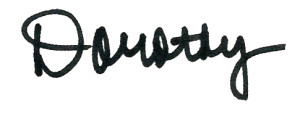By: Dorothy Douglass, SPHR, SHRM-SCP—
I work in Human Resources. Yes, I’m “that” person. HR does many things within an organization, one of them being hiring people. And that is what I’m asked about on a regular basis. I’m also over age 50. Why share that? Because I’ve been around the proverbial block and watched, participated in and led hiring in a number of businesses. The recruiting world has changed greatly over the last 20 years, and is not what it once was.
I had a former classmate contact me as he was in a job search recently after being laid off, and he was frustrated. When he last job-searched, he could mail his resume, call someone, and/or walk in to a business, drop off a resume and ask for an interview. This is no longer the case – at least in many businesses.
Another family friend – also over age 50 – had been a long-time employee in a small business – two employees – and the business closed down. He had never been on a computer. He doesn’t have a cell phone. And he was initially thwarted in conducting a job search.
No matter your age, or your situation, let me suggest some basic tips on conducting a job search:
- Get computer-savvy. If you don’t own a computer, consider going to your local library or WorkOne office. Likely, they have computers available for public use, and they may even have some classes you can take. Talk to a neighbor, friend, or relative and ask for some guidance on using a computer. If you are already computer literate, great! If not, practice and patience are important. Many companies advertise jobs only through the internet, and have only an online (automated) application.
- Update your resume. Have someone you know and trust review your resume. Take out things like objectives, & personal information. Keep the resume trimmed if possible – if you are in my age range, leave off your high school info, and what date you went to or graduated from college. There are many articles on the web to help you with your resume. Keep it simple – forget the flowery fonts and colored paper – unless you are in marketing/advertising/creative industry.
- Network. This word frightens many. This doesn’t mean you have to join every organization in town. It does mean to think about who you know, go through your address book, and get on the phone with those that might help you in a job search. If you are quietly looking for a job while already employed, be sure those you contact are your trusted network of friends and relatives. Think about those people you know – at church, in the community, your neighbors, your friends. Who might be able to share news of job openings?
- Use the internet. Indeed.com seems to be a popular job search tool in today’s world (Almost 80% of our company’s applicants have found the job they are interested in through Indeed.com. And we get more than 1,000 applications per year). Get on there, join for free, and get your resume on that website. Look at other websites as well, including company sites where you have an interest in working.
Patience, positive attitude, and persistence will pay off. Stay with it. Just because the first place you applied online did not call you, don’t lose heart. Keep going, and keep looking. Job openings change daily. It is important to apply for jobs that you are truly interested in working. Be discerning, but it is important to apply to as many companies as you are interested in jobs they have open.
There are thousands of articles on hiring and recruitment on the web. If you’ve done your work and have an interview scheduled soon, here are some tips from a great resource, author Jeff Haden:
http://www.inc.com/jeff-haden/how-to-get-hired-the-perfect-job-interview-in-16-steps.html
Dorothy Douglass, SPHR, SHRM-SCP is Vice President, Human Resources with MutualBank and is a Muncie Journal contributing editor on Human Resources topics and trends. MutualBank is a founding partner of the Muncie Journal project.





